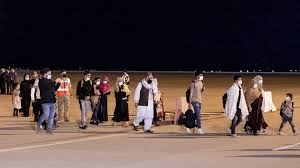A new study by the Energy Policy Institute at the University of Chicago has found that Delhi is the world’s most polluted city. The study, which used the Air Quality Life Index (AQLI), found that Delhi’s residents are on track to lose an average of 11.9 years of life if the current levels of pollution persist.
The AQLI is a measure of the impact of air pollution on life expectancy. It takes into account the concentration of fine particulate matter 2.5 in the air, as well as the population’s vulnerability to air pollution.
It is made up of tiny particles that can penetrate deep into the lungs and cause a variety of health problems, including heart disease, stroke, lung cancer, and respiratory infections.
The study found that the average annual PM2.5 concentration in Delhi is 110.6 micrograms per cubic meter (µg/m3). This is more than 22 times the WHO’s safe limit of 5 µg/m3.
The study also found that 67.4% of India’s population lives in areas where the annual PM2.5 concentration exceeds the WHO’s safe limit.
The study’s authors say that the findings are a “wake-up call” for India and other countries that are struggling with air pollution. They say that urgent action is needed to reduce air pollution levels and protect public health.

















































